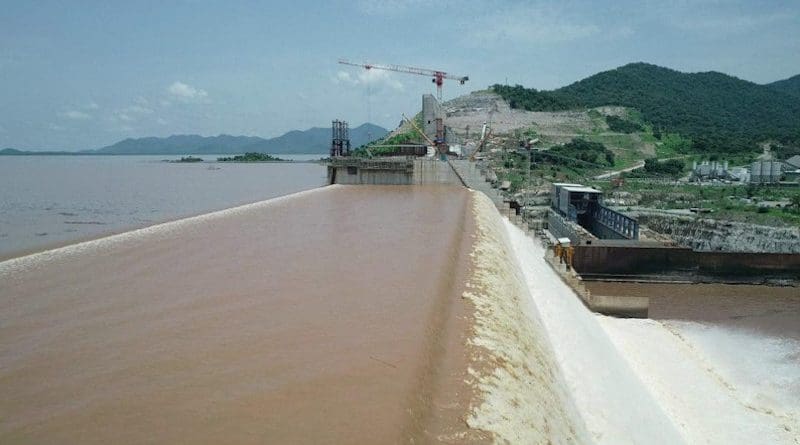Ethiopian Action On Renaissance Dam Rejected As Unilateral Act, Says Egypt
By Arab News
By Mohammed Abu Zaid
Any action taken by Ethiopia on the Renaissance Dam is a unilateral act that is rejected, an Egyptian government minister has said.
Ethiopia began work on the 1.8-kilometer, multi-billion dollar dam in 2011. Egypt fears it will threaten its water supply from the Nile, while Sudan is concerned about the dam’s safety and its own water flow.
Egypt’s Water Resources and Irrigation Minister Mohamed Abdel-Aty stressed his country’s persistence in preserving its water rights and achieving benefits for all parties involved in any agreement regarding the Grand Ethiopian Renaissance Dam (GERD).
He also stressed Egypt’s quest for a just and binding legal agreement meeting the aspirations of all countries in development and that any action taken without such an agreement and without coordination with the downstream countries, Egypt and Sudan, was a unilateral act that was rejected.
Abdel-Aty said that Egypt supported development in the Nile Basin and African countries as it had established rainwater harvesting dams and underground drinking water stations to provide pure drinking water in remote areas.
Solar energy technology was being used in a large number of these groundwater wells to allow their sustainable operation, he added.
The minister referred to projects that purified waterways and protected them from flooding as well as the establishment of fish farms and river marinas.
He highlighted the ministry’s contribution to preparing the necessary studies for projects to build multi-purpose dams that provided electricity and drinking water for citizens in African countries.
Egypt also provided training support and capacity building for technical workers from the Nile Basin countries, he added.
The minister said that Egypt was one of the most water-scarce countries in the world, with its resources estimated at about 60 billion cubic meters annually.
While most of this amount came from the Nile, there were also very limited amounts from rainwater and deep groundwater in deserts.
The total amount of water needed annually in Egypt was around 114 billion cubic meters, he pointed out.
The gap between Egypt’s supply and demand would be compensated by reusing agricultural drainage water and surface groundwater in the valley and delta, corresponding to 34 billion cubic meters of water annually, he said.
He also referred to the imports of food products to meet local needs.
The minister said that Egypt was working on preparing a strategy for water resources until 2050 at a cost of EGP900 billion ($57.42 billion) and setting a national plan for water resources until 2037.
The plan includes rationalizing water use, improving water quality, providing additional water sources, and creating the climate for optimal water management.
He said that, during the past five years, many measures had been taken to increase the country’s readiness to deal with water challenges and face any emergency the water system may face.
These challenges required strenuous efforts to confront them, he explained.
At a social level, public awareness could be increased on the importance of rationalizing water and saving it from waste and pollution.
At a government level, he said the challenges could be addressed with major projects or through legislative development.

